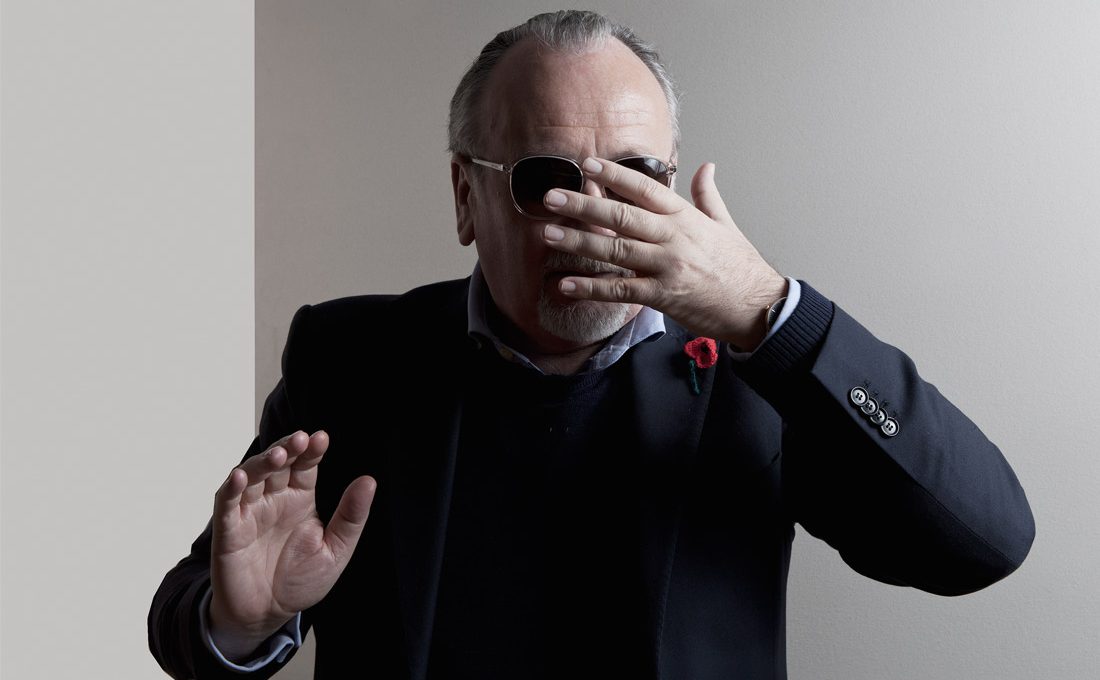We meet Friedrich Liechtenstein in Berlin at the Emil Studios, in the house where David Bowie, Tangerine Dream, Nick Cave and Depeche Mode recorded landmark albums — and Liechtenstein his latest offering, the album Schönes Boot aus Klang. A special venue for a special man! Musician, actor, puppeteer, and ornamental hermit Friedrich Liechtenstein talks to us here, about topics as broad-ranging as his personal interests, from the smell of Stalin City to the inner life of a bordello. Not least, he heralds the advent of the algae age. www.artistnetwork.de
PORTRAITS: Franziska Taffelt
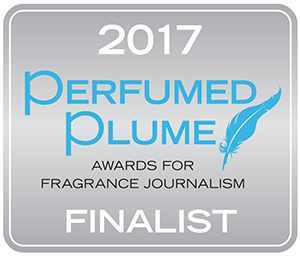
This feature is a proud finalist of the 2017 Perfumed Plume Awards.
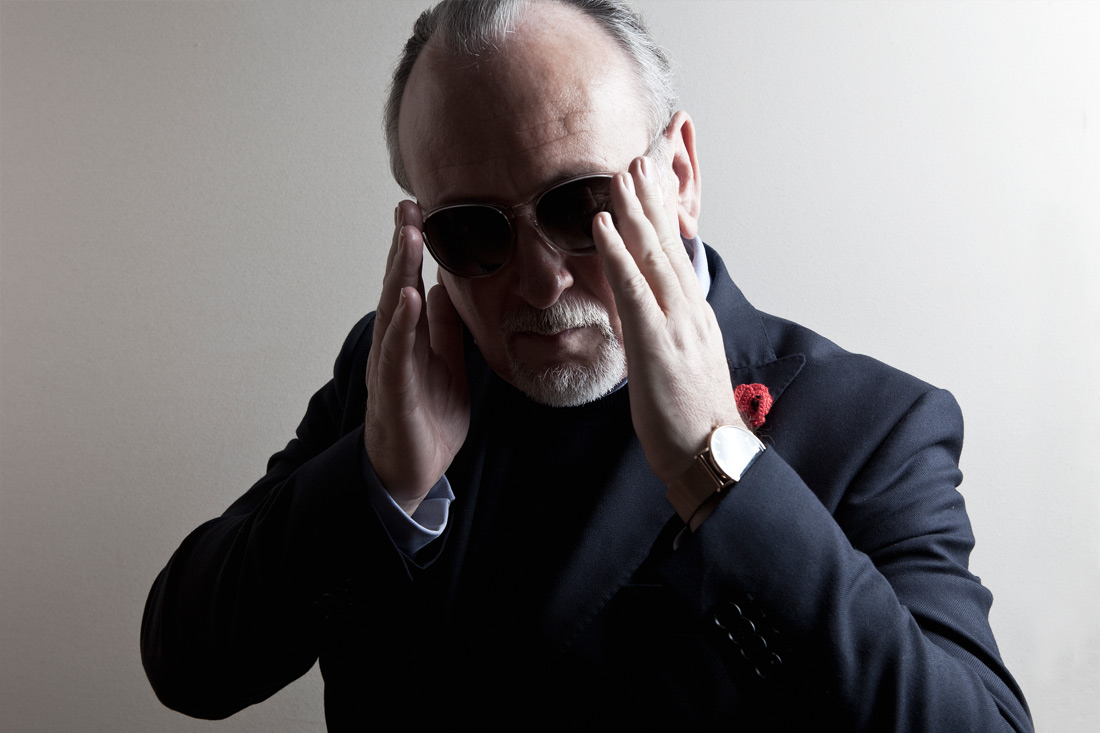
1. THE BLIND TASTING
Amour de Palazzo BY Jul et Mad
We confronted Friedrich Liechtenstein with a mystery perfume in a neutral, opaque vaporizer. Only afterwards did we reveal the name of the scent. Follow Friedrich on his journey into scent …
“The sexiest scent I’ve ever known.”
I imagine this woman has a great tumbling mass of curls, with a glint of red. She has a cute, upturned nose, too, and a slight olive tint to her skin, and when the weather’s cold she gets goosebumps. Now, she’s wearing a bottle-green woolen sweater that feels a bit prickly. It’s late fall and she and her friend are just back from a long walk across a rolling Irish landscape: pasture land, mostly. They step inside a simple log house with a mossy roof. From the window, there’s a view beyond the hill of a sliver of sea but it’s further away than it looks, on foot — far easier to reach the beach by bike or on horseback.
Her sweater smells of sheep’s wool and the mist makes her hair curl more than ever. For sure, there’s some whisky in the house, as well as heavy linen bed-sheets. The wood, the moss, the wind, the whisky, the smell of her damp, curling hair — well, wouldn’t anyone be bound to think: “Now, isn’t this fine and cozy?” But I would detect another smell too, a fragrance, and I’d ask: “Is that a perfume for men?” And she’d reply: “Yes, but it’s all the same to me.” I’d think that a pretty cool answer.
The house doesn’t belong to the two of them but they can use it as often as they like. They’ve been there a week already and will stay for one more. They’re not lovers — although it remains a possibility. They’re over thirty now and not yet forty, on the lookout for the second, third, or fourth love of their lives and have come out here to check out the odds. Naturally, they’ve told each other that they’ve no plan and absolutely no expectations beyond this shared trip to Ireland; and also that it’s cheaper to travel as a pair, of course, plus that way, there’s someone to talk to. They’ve emphasized all the practical reasons, so as not to be disappointed. At heart they’re both creative types, anyhow, with lots to say and a love of taking things to the limit: existential stuff. Certainly they’ll never grow bored.
Whatever happens, the time in that house will last forever. So he’ll be irritated, later, to smell her men’s perfume elsewhere one day, to be stopped in his tracks and find himself thinking: “That reminds me of her. How come this guy is wearing her perfume? It’s the sexiest scent I’ve ever known …”
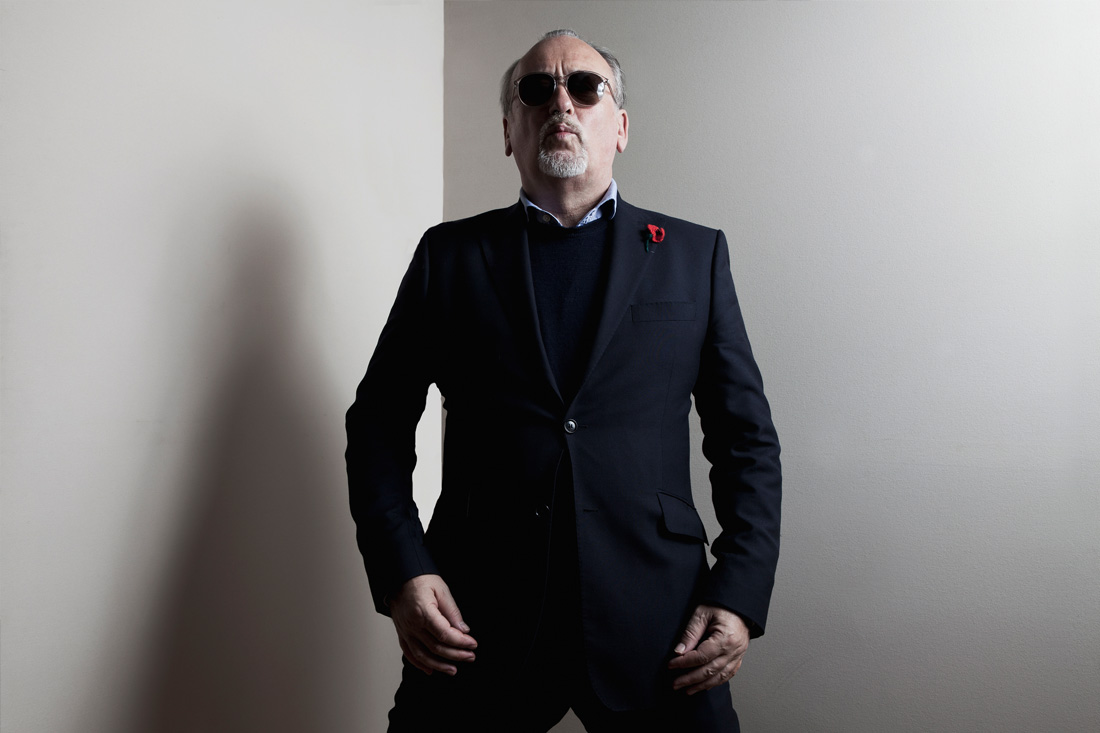
2. THE INTERVIEW
“I can smell luck.”
SCENTURY: What role does the sense of smell play in your life? Would you say you have a good nose?
Friedrich Liechtenstein: I once claimed I could smell luck — but I couldn’t for the life of me say how it smells.
SC: A paradox!
FL: There are certain situations when I notice: “Wow, that here is really damn good!” And then I somehow exude that smell. I can’t describe how it smells but I know that it goes through the nose. And then I like to breathe it in very deeply, and I say to myself: “This here smells very much like luck!”
SC: Perhaps it’s not a good idea to try to describe this smell.
FL: I think you’re right.
SC: What is your earliest memory of perfume?
FL: The idea of perfume didn’t appeal to me at all as a child, nor as a teenager, and I didn’t really give perfume a second thought until I was in my early thirties. By then, I had noticed that a lot of people who wore perfume had a quite self-assured air and that certain rooms smelled of it: hotel lobbies, for instance. And the more high-class the location, the more closely I took note of the odors there and, by and by, I finally got around to buying myself a perfume.
SC: Do you have any olfactory memories of your childhood?
FL: I have a very strong olfactory memory from Frankfurt Oder, where I lived for several years. Anytime you got on a tram there, it totally reeked of cheap Russian perfume.
SC: That sounds intense!
FL: Well, it was. There’d be a pervasive smell of lily of the valley, plus a note of garlic. It was that probably, which made me think perfume was a load of rubbish. In any case, there weren’t many labels to choose from in East Germany. And most of them smelled pretty much the same.
SC: You grew up in Eisenhüttenstadt, which at the time was officially called Stalin City. How did that smell?
FL: I realize, in retrospect, that the smell of disinfectant was everywhere, in schools, apartment building hallways, and all kinds of public space. Everything stank of it. And my father worked in a hospital, too, so he used to bring that clinical smell — a very toxic smell — home with him each evening.
SC: Can you recall any positive scented memories?
FL: Oh, yes. Occasional moments. I used to go to those dances when I was fifteen or sixteen, and the girls’ hair would smell of shampoo. I certainly noticed that.
SC: Did the women in your family circle use perfume?
FL: Pretty regularly. We once gave my great-grandmother a bar of scented soap for her birthday, simply because we couldn’t think of anything else. Unfortunately, she imagined we thought she smelled bad — and she was really offended.
SC: A classic case!
FL: And then of course there were “Westpakete” too: gift packages sent to East Germany by relatives and friends on the other side of the Wall. When we opened those, the whole room smelled of the West. Even the wrapping paper smelled of the West.

SC: And how did the West smell?
FL: Of body care products, chewing gum, coffee, and chocolate … Of chemical compounds, most of all, I guess. Altogether more of everything, more scent!
SC: You’ve spent a good deal of your life in theaters: in a puppet theater, firstly, then later, as a director, among actors and actresses. The theater and intensive odors surely go hand in hand.
FL: Certainly in the puppet theater in the East back then, there was always a strong odor of plastic materials and glue, because we used to make stuff. Then, too, we puppeteers used to work together in very small, enclosed spaces and were not too fussy about how we looked and smelled. We stayed behind the scenes, dressed always in black, did eighteen-hour shifts, and sweated a lot. When among actors, however, we were a little more dapper, since we worked with them on airy stages and in public view. But personally, I’ve nothing against people smelling of themselves now and then. I’m a fan of armpit hair too, if it’s not too long — I just love those lovely whorls in which a person’s smell can hang loose and free. I find that a lot more appealing than having everything squeaky clean.
SC: It tells you more about a person?
FL: I once had a photo shoot in a bordello. There were some prostitutes there and it was interesting to see how they used cosmetics to obliterate themselves. They were vacuum packed, quasi, so you could hardly tell who they were. Their skin was all solarium and creams. They had hair extensions. Everything was fake. They were totally abstract.
SC: Do you think they put on a mask to protect themselves?
FL: Yes, I do. They want to give away as little of themselves as possible, so they plaster on the make-up with a trowel and shave off every last hair. Body hair would reveal too much, would be far too intimate. So there wasn’t a trace of it left.
SC: How did the bordello smell?
FL: Totally synthetic — it smelled of make-up and perfume, and some disinfectant or other. I was in a bed with these three women and we did a photo shoot, but I couldn’t tell you a thing about them. If I ran into them on the street, I’d never know it. And I couldn’t smell even a whiff of them.
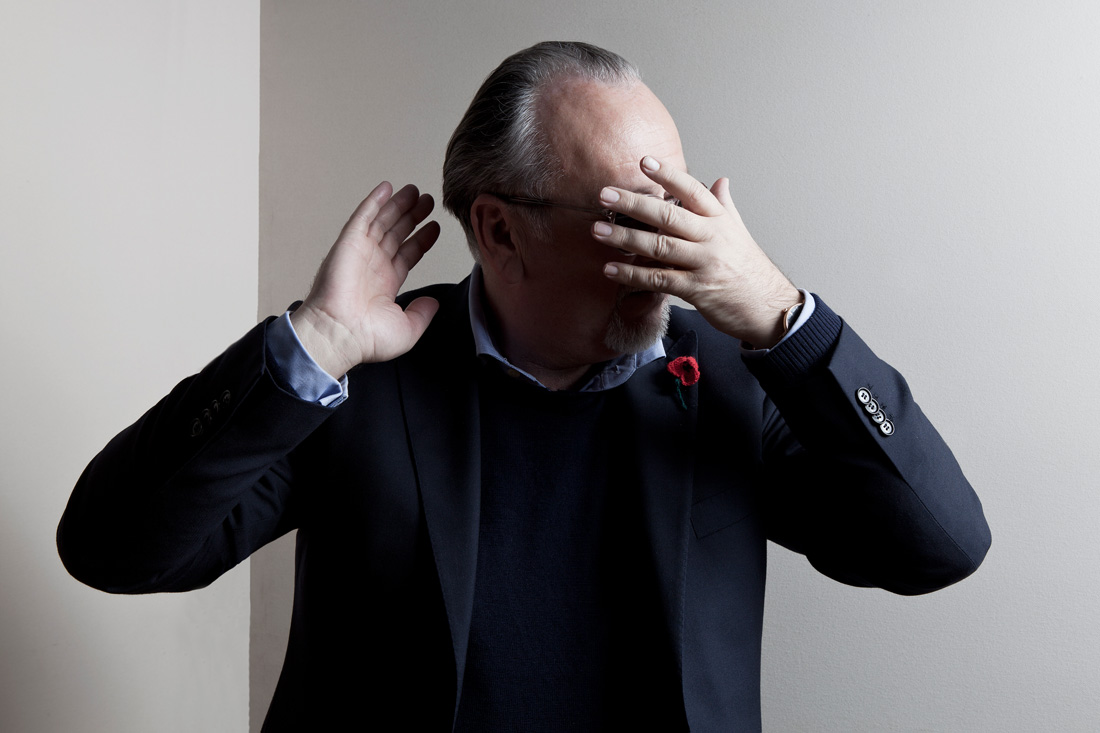
Long live the Era of Algea!
SC: What is the best smell you can imagine?
FL: I used to really enjoy the smell of seaweed when we went to the Baltic Coast as kids. We’d bind it up with yarn to make animal shapes: poodles, elephants, giraffes, or whatever. And of course we never wanted to leave these “pets” behind when the holiday was over, so we took them home with us. And lots of people said: “What a stink!” But I really loved the fact that they smelled of the sea.
SC: Brilliant! You took some beach home in your bag with you. I heard that seaweed — or algae, rather — is still important to you now?
FL: Man seeks his counterpart in nature and compares himself with it. He tends to think that if he finds a parallel in nature then everything is fine, because nature never makes mistakes. At the least since Darwin’s day, the most universally recognized symbol of life is the tree: the Tree of Life, the family tree … The systemic principle behind it is that an individual grows and branches out. But as quite a few people have realized, things are not quite like that at all, because life is actually structured like tubers or rhizomes: cities, our bodies of knowledge, random encounters and “networking” either down the pub or at work, how we run about the place, and so on. And that’s why I once declared, half in jest: “The era of the oak is over. Long live the algae era!
SC: What awaits us in the algae era?
FL: An explosion of structural opportunities, metamorphoses and symbioses. In nature we find role models for our own workings, our own lives, first and foremost the idea that we can shape our lives in incredibly diverse ways. The algae image came up for me at a time when I was feeling powerless. In a way, it’s the trump card in life’s quartet. When you draw the algae card — well, it has something to say on every topic: on droughts, hunger, new textiles, electricity, energy, beauty, colors — on everything under the sun. It’s the smartass card! That’s why I stick with the algae card and why I like to spread word of it. With algae as a role model you can go a long, long way — as far as forgetting.
SC: As far as forgetting?
FL: Everything, all the time these days, is oriented to gaining more knowledge. But at the same time, we have to admit that all the more modern means of storing knowledge are breaking down and falling into ruin at an ever-faster rate. The first murals we ever had, cave-paintings, have been able to convey information for many thousands of years whereas books can do so only for hundreds of years, vinyl recordings for around fifty, and CDs, as we know, usually for no more than five. In addition, we know already that to never forget anything is an actual illness. And that to be able to forget, utterly and completely, is in fact a magnificent skill. Algae can do that. Whenever algae find themselves in a crisis they’re able to totally reorganize their existence from one day to the next. They find a way to reproduce themselves differently, to feed themselves differently, and even forget that they were once something completely different.
SC: Can human beings perhaps learn to act like algae?
FL: I personally rather like the idea that man is a pretty tough character, a tenacious kind of beast, and that the art of forgetting is really very positive. After all, borders dissolve at times of their own accord, whatever we do.
Thanks to the Internet we now have a very concrete sense of what it means to be networked as well as of the explosions I mentioned. Yet it’s equally feasible to remain solitary, in the same place your grandma grew up, to take over her house and farm, and to marry your neighbor’s daughter. There’s nothing wrong with that at all. It too falls within the parameters of the algae concept. Even trees were algae, once upon a time. It took endosymbiosis and several million years’ evolution for them to become what they are today. In the beginning, at the inception of organic life, algae introduced photosynthesis and that’s how we came to have oxygen, which in turn fostered the genesis of other life forms.
SC: So we owe a lot to algae?
FL: Yes. No question about it. And more and more people are taking an interest in plants today, and it’s been proven that plants communicate with each other, feel pain, take care of their offspring, warn each other of danger …
SC: … and use odors to do so, or so I’ve heard.
FL: Exactly. I’ve read that too.
SC: When you came in earlier I smelled Guerlain’s Vetiver, which is a true classic. Is that your signature scent or do you vary perfumes from day to day?
FL: No. I stick with the same one for a very long time, and always have.
SC: Do you go looking for perfumes yourself or receive them as gifts or follow recommendations?
FL: I look for them myself. Of course I’m not averse to flattery. If a lot of people pay me compliments I stick with the same perfume.
SC: Well, naturally: it’s one of the main reasons to wear a perfume. So when do you change to a new one?
FL: Probably I’m ripe for a change every seven or ten years or so.
SC: What triggers the change?
FL: Tedium. You just wake up one day and say: “Enough!” I had that experience recently. I was sick of my glasses, which I felt I’d been wearing forever, and also suddenly tired of my beard.
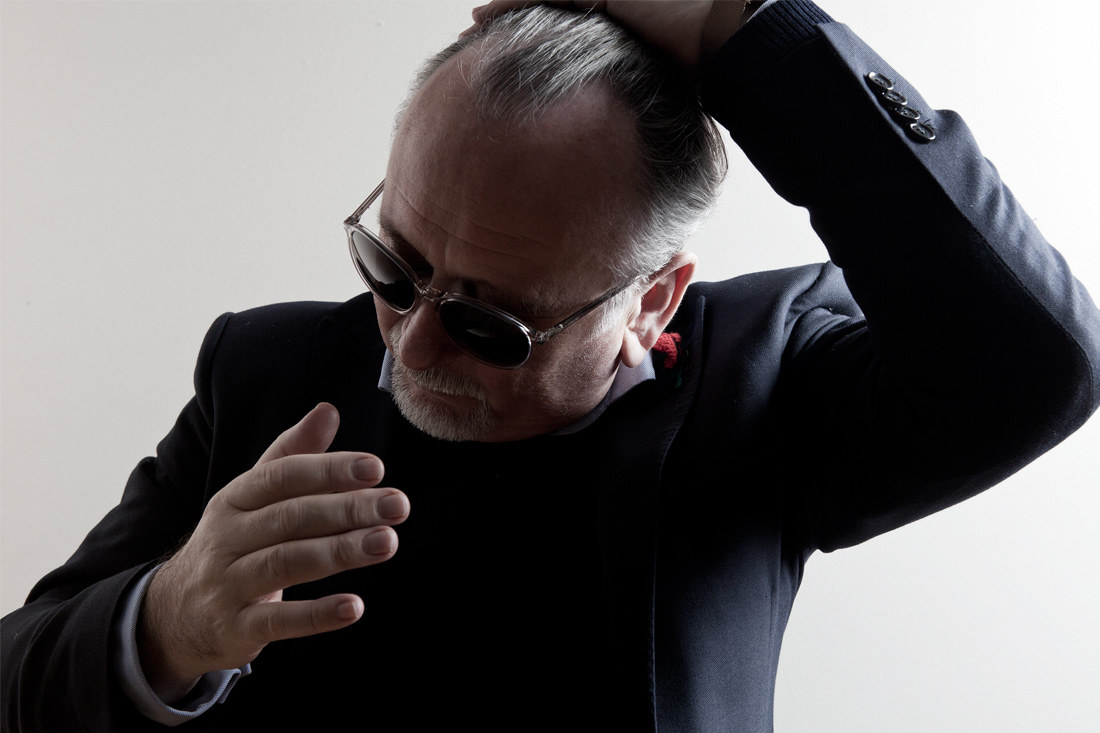
SC: You’ve spoken of the shift in your alter ego, from Dolphin Man to Elevator Man. What is the distinction between them?
FL: Dolphin Man, as his name suggests, was like a dolphin: always communicative, always friendly. Elevator Man is different altogether. He keeps himself to himself. He operates the elevator in a grand hotel.
SC: Like Felix Krull?
FL: No. He is older than Felix Krull and he has a strict vocational ethos. He would never dream of flirting with the guests who ride his elevator — not like his colleague at the hotel, who is a bit like Felix Krull. The two of them are at loggerheads. His colleague tries to steal guests from under his nose, to coax them into his elevator so as to make more in tips. Elevator Man would never do that. He has his own metaphysical elevator, which is something like the orgone energy accumulator invented by Wilhelm Reich.
SC: The small chamber used to channel cosmic energy? Wow!
FL: Exactly. But bigger and more beautiful — and mobile, of course.
SC: As Elevator Man, you doubtless need to make yourself invisible at times? All sorts of things go on in elevators.
FL: That’s right. And that’s the reason Elevator Man always remains deadpan, and never passes judgment. People tip him, not for flirtation or labors of love but precisely because he never sees or hears a thing.
SC: Then he probably also refrains from wearing perfume, so as to be even more low-key. Does he smell of anything at all?
FL: Well, occasionally slightly of brandy, perhaps, since he keeps a bottle hidden behind the fire extinguisher on the third floor.
SC: Thank you, Friedrich!
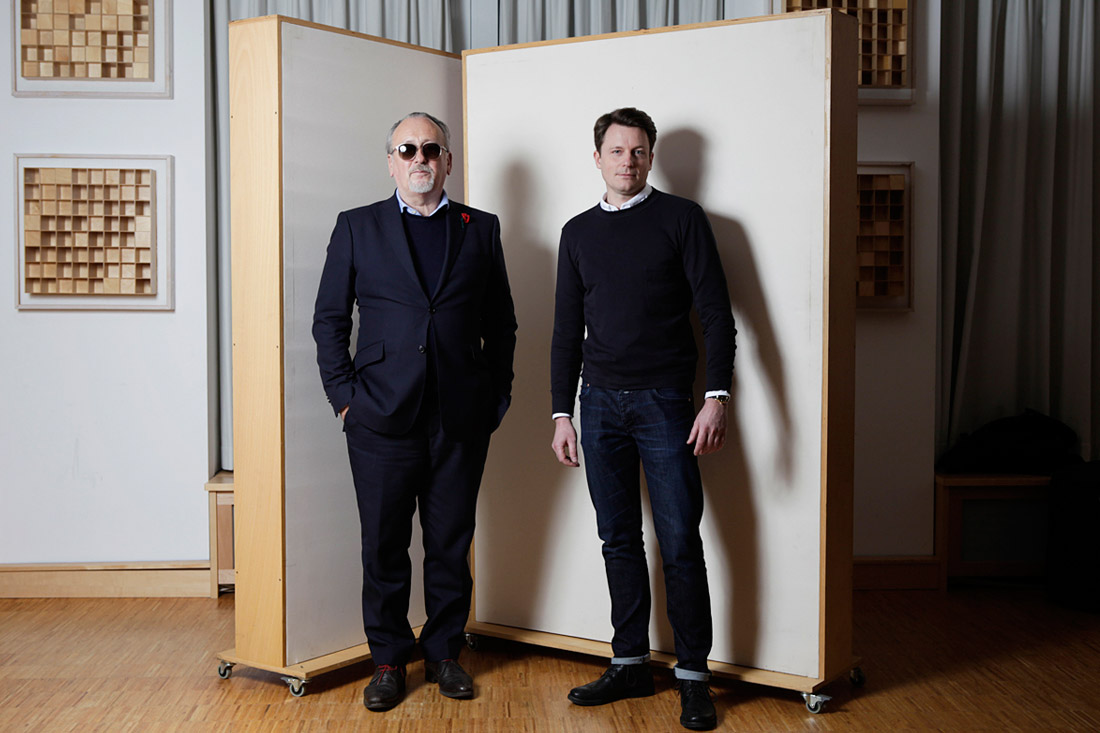 Making of: Friedrich Liechtenstein with SCENTURY founder Helder Suffenplan. Photo: Franziska Taffelt.
Making of: Friedrich Liechtenstein with SCENTURY founder Helder Suffenplan. Photo: Franziska Taffelt.
ABOUT FRIEDRICH LIECHTENSTEIN
Name: Friedrich Liechtenstein
Occupation: Musician, Actor, Ornamental Hermit
Location: Berlin
Info: www.artistnetwork.de
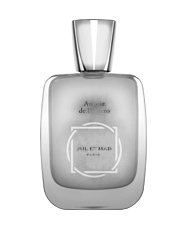
ABOUT THE PERFUME
Perfume: Amour de Palazzo by Jul et Mad
Category: unisex
Perfumer: Dorothée Piot
Year: 2012
Discover more perfume blindtastings here on SCENTURY!


